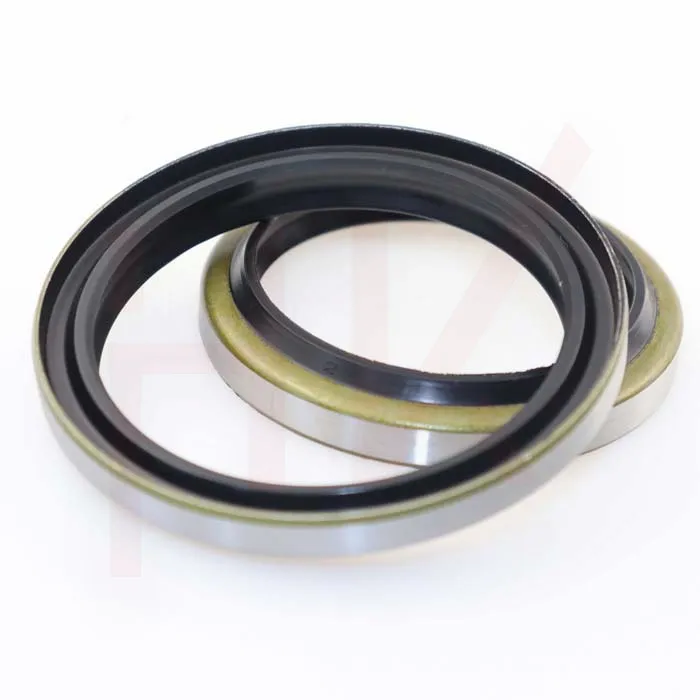Oct . 18, 2024 11:36 Back to list
Understanding the Functionality and Importance of Rotary Shaft Seals in Machinery
Understanding Rotary Shaft Seals Importance, Applications, and Maintenance
Rotary shaft seals are critical components in various mechanical systems, designed to prevent the leakage of fluids and contaminants from the shaft area of machinery. These seals play a vital role in maintaining the integrity and efficiency of mechanical systems, which often operate under challenging conditions. This article delves into the importance of rotary shaft seals, their applications across different industries, and best practices for maintenance to ensure longevity and peak performance.
The Importance of Rotary Shaft Seals
Rotary shaft seals, also known as oil seals, are engineered to retain lubricants and prevent the ingress of dirt and moisture. Their primary function is to create a barrier between the rotating shaft and the stationary housing, ensuring that fluids—such as oil, grease, or hydraulic fluid—remain contained within the system. This sealing mechanism is critical for several reasons
1. Preventing Contamination In many machinery applications, contamination can lead to catastrophic failures. By sealing off the system from external contaminants, rotary shaft seals help maintain the cleanliness of the lubricating fluids.
2. Enhancing Lubrication Proper lubrication is essential for reducing friction between moving parts. By preventing the escape of lubricants, rotary shaft seals ensure that mechanical components operate smoothly, thereby extending their lifespan.
3. Minimizing Downtime Equipment failures due to leaks can result in costly downtimes. Utilizing high-quality rotary shaft seals decreases the likelihood of leaks and mechanical failures, leading to improved operational efficiency.
Applications of Rotary Shaft Seals
Rotary shaft seals are found in various applications across multiple industries, including
1. Automotive Industry In vehicles, rotary shaft seals are extensively used in engines, transmissions, and differentials. They prevent oil leaks and protect sensitive components from dirt and debris, contributing to vehicle reliability.
2. Industrial Machinery Rotary shaft seals are essential in manufacturing equipment, pumps, and motors. They ensure that hydraulic systems operate effectively and prevent loss of fluid pressure.
rotary shaft seal

3. Aerospace In aerospace applications, the reliability of rotary shaft seals is paramount due to the extreme conditions faced during flight. These seals must withstand high temperatures, pressures, and speeds.
4. Agricultural Equipment Tractors and other agricultural machinery rely heavily on rotary shaft seals to maintain proper lubrication and protect against the harsh environments commonly encountered in the field.
5. Marine Applications Rotary shaft seals are utilized in marine engines and drive systems to prevent water ingress and ensure efficient operation under high-stress conditions.
Maintenance of Rotary Shaft Seals
To ensure the longevity and effectiveness of rotary shaft seals, regular maintenance is vital. Here are some best practices
1. Routine Inspections Regularly checking seals for signs of wear, such as cracking, deformation, or leakage, can prevent more significant issues down the line. Early detection allows for timely replacement before a failure occurs.
2. Proper Installation The correct installation of rotary shaft seals is crucial. Misalignment, contamination during installation, or improper seating can lead to seal failure. It is important to follow manufacturer guidelines during installation processes.
3. Use Quality Seals Opting for high-quality rotary shaft seals from reputable manufacturers is essential. Cheaper seals may not perform well under extreme conditions and could lead to premature failure.
4. Monitor Operating Conditions Keeping track of operating temperatures and pressures can help identify potential issues before they escalate. Ensuring that operating conditions remain within specified limits will prolong the life of the seals.
5. Lubrication Management Maintain optimal lubricant levels and ensure that the lubricants used are compatible with the seal materials. Regularly check for signs of contamination in the lubricants, which can degrade the seal's performance.
In conclusion, rotary shaft seals are indispensable components in a vast array of machinery and applications. They play a crucial role in ensuring fluid containment, protecting against contamination, and enhancing the overall performance of mechanical systems. Investing in quality seals and adhering to maintenance practices can significantly improve the reliability and efficiency of equipment, ultimately leading to cost savings and longer service life. Understanding and applying these principles will ensure that rotary shaft seals perform optimally, safeguarding the machinery they serve.
-
TCN Oil Seal Metal Ring Reinforcement for Heavy Machinery
NewsJul.25,2025
-
Rotary Lip Seal Spring-Loaded Design for High-Speed Applications
NewsJul.25,2025
-
Hydraulic Cylinder Seals Polyurethane Material for High-Impact Jobs
NewsJul.25,2025
-
High Pressure Oil Seal Polyurethane Coating Wear Resistance
NewsJul.25,2025
-
Dust Proof Seal Double Lip Design for Construction Equipment
NewsJul.25,2025
-
Hub Seal Polyurethane Wear Resistance in Agricultural Vehicles
NewsJul.25,2025
-
The Trans-formative Journey of Wheel Hub Oil Seals
NewsJun.06,2025
Products categories
















